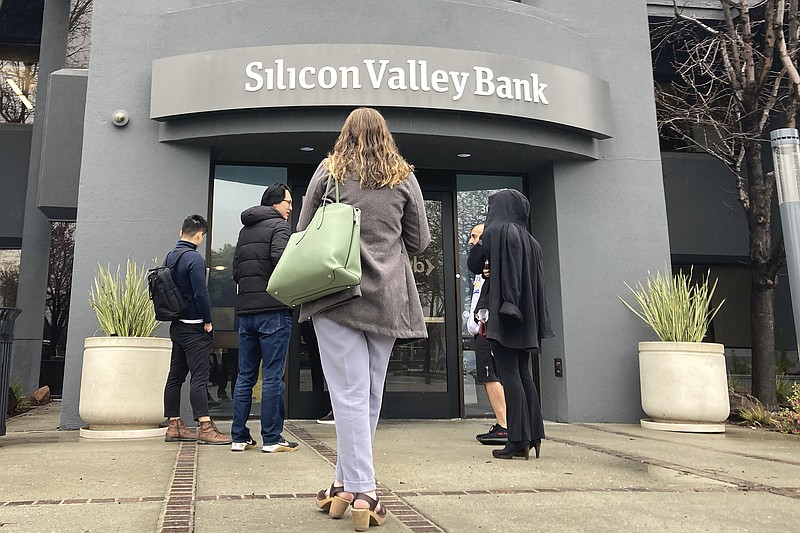By CHRISTOPHER RUGABER and KEN SWEET
AP Business Writers
WASHINGTON (AP) -- The Federal Reserve blamed last month's collapse of Silicon Valley Bank on poor management, watered-down regulations and lax oversight by its own staffers, and said the industry needs stricter policing on multiple fronts to prevent future bank failures.
The Fed was highly critical of its own role in the bank's failure in a report released Friday. The report, compiled by Michael Barr, the Fed's chief regulator, says banking supervisors were slow to recognize blossoming problems at Silicon Valley Bank as it quickly grew in size in the years leading up to its collapse. The report also points out underlying cultural issues at the Fed, where supervisors were unwilling to be hard on bank management when they saw growing problems.
Those cultural issues stemmed from legislation passed in 2018 that sought to lighten regulation for banks with less than $250 billion in assets, the report concluded. The Fed also weakened its own rules the following year, which exempted banks below that threshold from stress tests and other regulations. Both Silicon Valley Bank and New York-based Signature Bank, which also failed last month, had assets below that level.
The changes increased the burden on regulators to justify the need for supervisory action, the report said. "In some cases, the changes also led to slower action by supervisory staff and a reluctance to escalate issues."
Separate reports also released Friday by the Federal Deposit Insurance Corp. and the Government Accountability Office, the investigative arm of Congress, also faulted the Fed and other regulators for a lack of urgency regarding Silicon Valley's deficiencies. About 95% of its deposits exceeded the FDIC's insurance cap and its deposits were concentrated in the technology industry, making the bank vulnerable to a panic.
The FDIC's report concerned the failure of Signature Bank on March 12 and the specific problems that led to its collapse: the bank's exposure to cryptocurrencies and an overreliance on uninsured deposits. The FDIC also found that Signature Bank's failure was also likely fallout from the failure of Silicon Valley Bank.
But the FDIC found its own regulatory deficiencies, notably insufficient staffing to adequately supervise Signature Bank, which was based in New York. The agency also took a light-handed approach to regulation, the report found.
"The FDIC could have been more forward-looking and forceful in its supervision," the FDIC said in its report.
In its report, the Fed said it plans to reexamine how it regulates larger regional banks such as Silicon Valley Bank, which had more than $200 billion in assets when it failed, although less than the $250 billion threshold for greater regulation.
The reports "provide a clear path for a tougher and more costly regulatory regime for banks with at least $100 billion of assets," said Jaret Seiberg, an analyst at TD Cowen. "We would expect the Fed to advance proposals in the coming months."
Alexa Philo, a former bank examiner for the Federal Reserve Bank of New York and senior policy analyst at Americans for Financial Reform, said the Fed could adopt stricter rules on its own, without relying on Congress.
"It is long past time to roll back the dangerous deregulation under the last administration to the greatest extent possible, and pay close attention to the largest banks so this crisis does not worsen," she said.
The Fed also criticized Silicon Valley Bank for tying executive compensation too closely to short-term profits and the company's stock price. From 2018 to 2021, profit at SVB Financial, Silicon Valley Bank's parent, doubled and the stock nearly tripled.
The report also points out that there were no pay incentives tied to risk management. Silicon Valley Bank notably had no chief risk officer at the firm for roughly a year, during a time when the bank was growing quickly.
